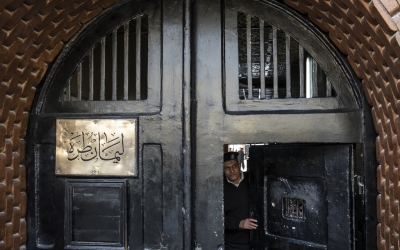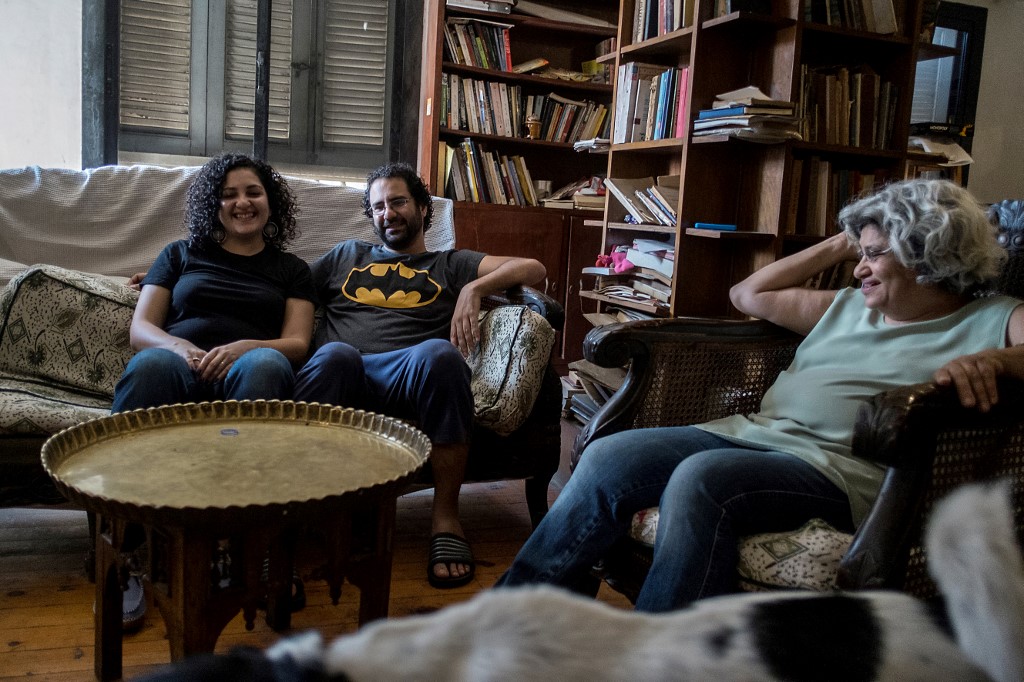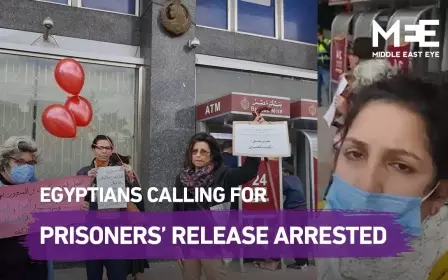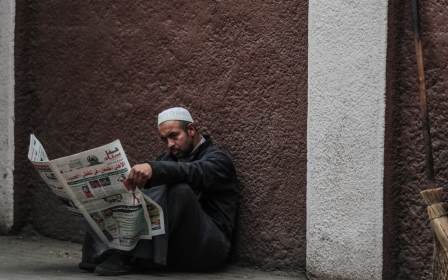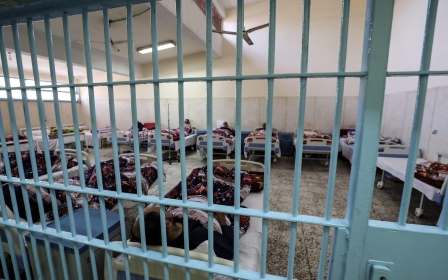Coronavirus: Jailed Egyptian activist Alaa Abdel Fattah goes on hunger strike
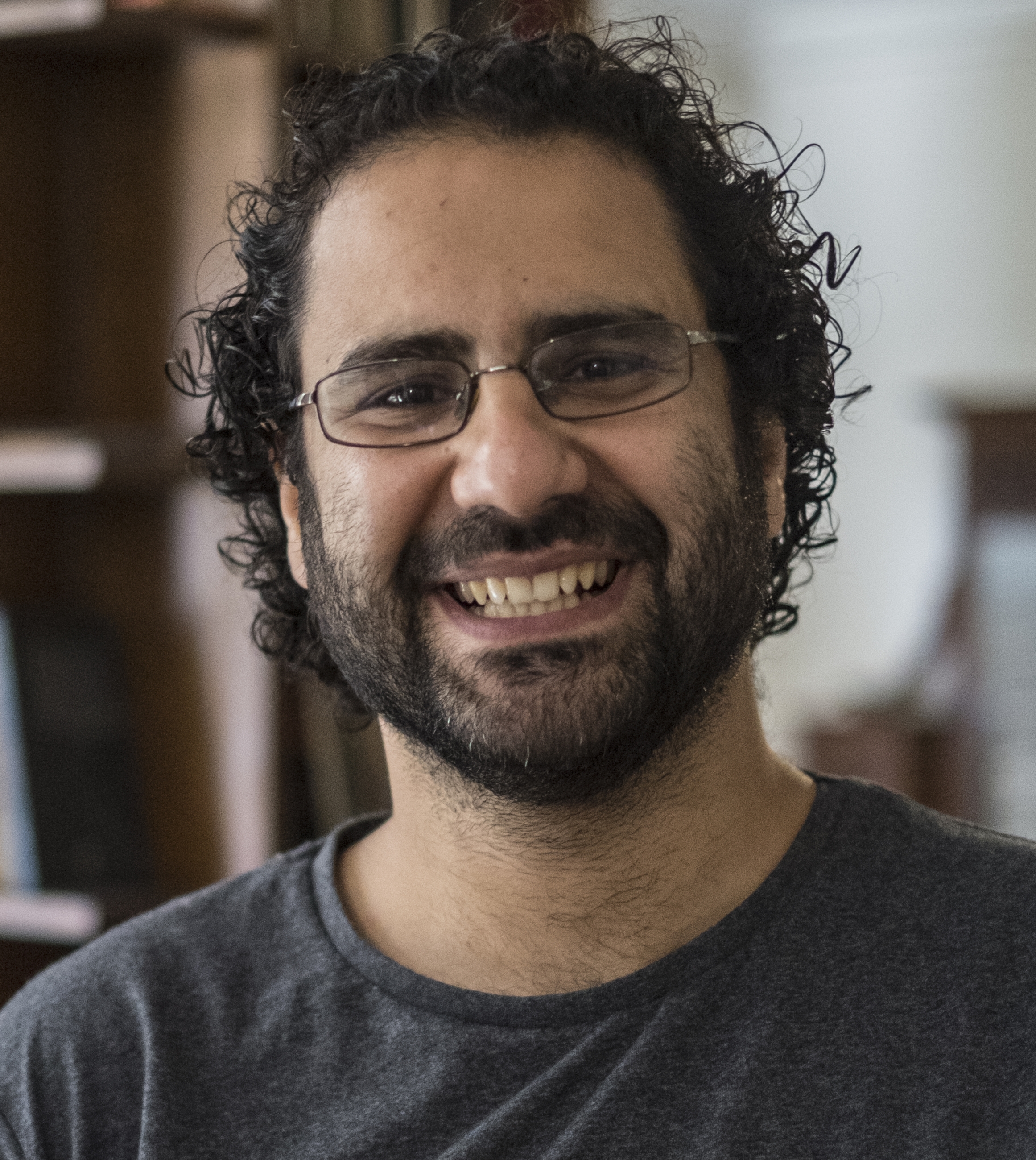
Egyptian political prisoner Alaa Abdel Fattah has gone on hunger strike in Cairo’s Tora prison in protest against his detention and the continued ban on family visits amid the coronavirus pandemic, his sister said on Wednesday.
According to Mona Seif, the activist’s sister, Abdel Fattah, 38, will abstain from food but continue to drink liquids.
New MEE newsletter: Jerusalem Dispatch
Sign up to get the latest insights and analysis on Israel-Palestine, alongside Turkey Unpacked and other MEE newsletters
“I believe that what drives Alaa’s decision at the moment is the continued ban on his presence with his son in such exceptional circumstances, and his worry about the family,” Seif said, referring to the ban, introduced more than a month ago, on family visits.
The hunger strike followed a decree by Egypt’s president Abdel Fattah el-Sisi on Wednesday to pardon a number of prisoners to mark Sinai Liberation day.
But the decision excluded those whose charges relate to national security, counter terrorism or violation of the protests law - the three most common charges levelled against government critics.
Egypt jails overcrowded
Abdel Fattah was one of the leading voices during the 2011 uprising that led to the ousting of then-president Hosni Mubarak. He was jailed on charges of protesting without permission in 2013 and had been granted conditional release in March last year.
The terms of his parole meant that he must spend every night in a cell in his local police station, where he was arrested again in September.
Abdel Fattah’s mother and aunt were briefly detained on 18 March after holding a small protest calling for the release of prisoners.
Rights groups and advocates have repeatedly called on the Egyptian government to free political prisoners to prevent an outbreak of coronavirus in the country’s overflowing prisons.
There have been frequent reports of overcrowding: according to the official National Council for Human Rights, in 2015 prisons were 300 percent above capacity, while prisons were 160 percent above capacity.
Human Rights Watch has estimated that more than 60,000 political prisoners languish in Egyptian jails since President Abdel Fattah el-Sisi came to power in 2014.
Sisi has routinely jailed critics, including secular and Muslim Brotherhood politicians, journalists, and human rights defenders. Hundreds have died in custody through medical negligence or other poor detention conditions.
Middle East Eye delivers independent and unrivalled coverage and analysis of the Middle East, North Africa and beyond. To learn more about republishing this content and the associated fees, please fill out this form. More about MEE can be found here.


